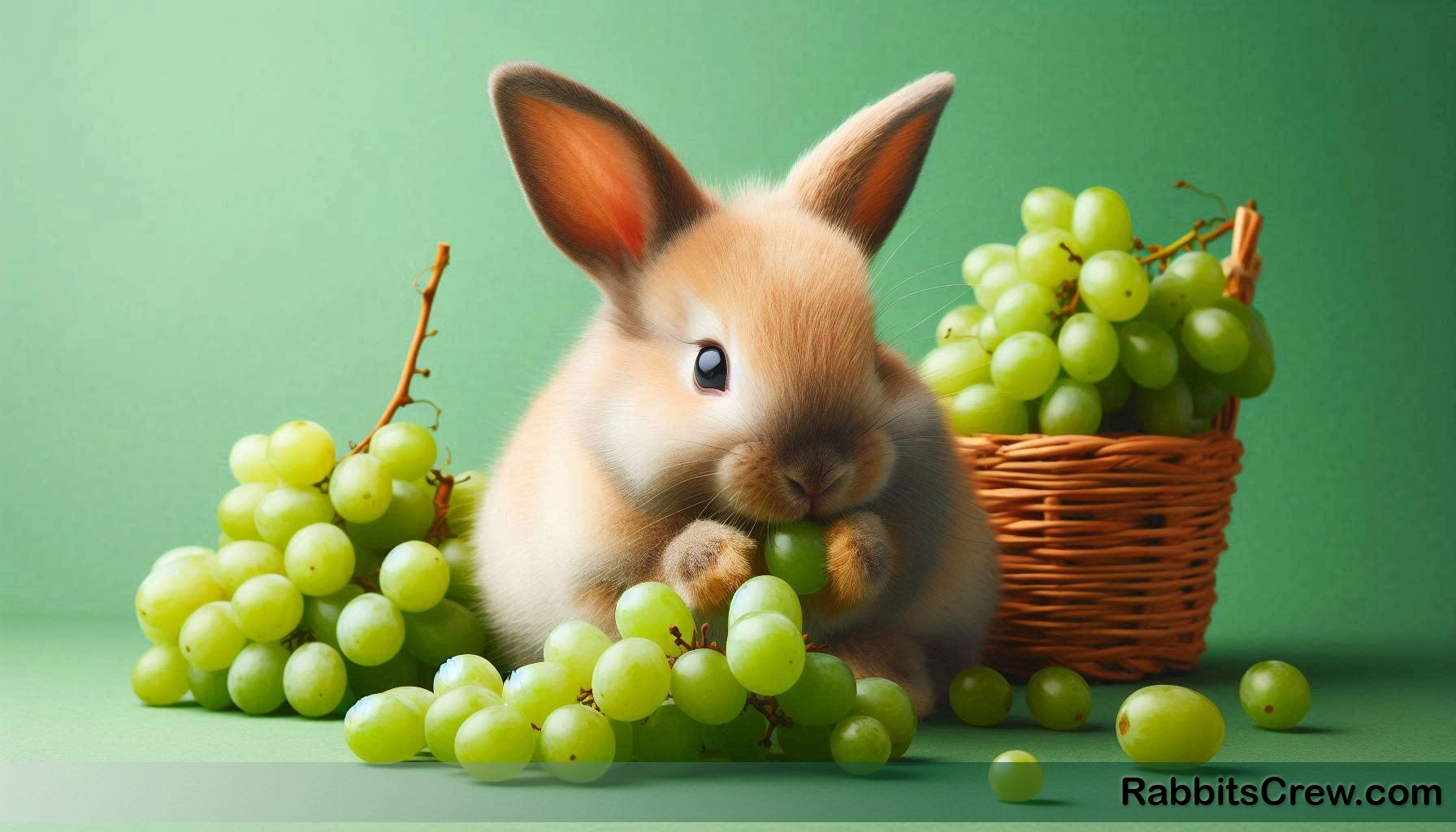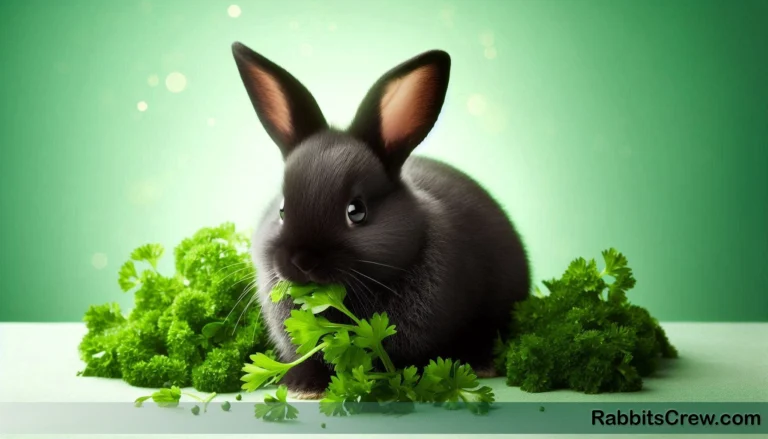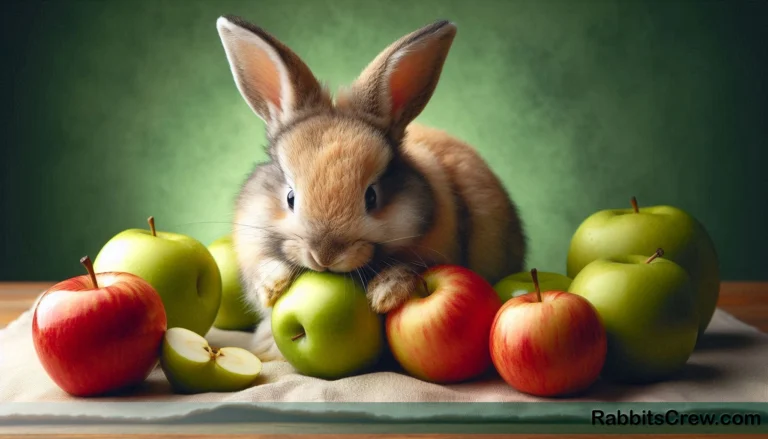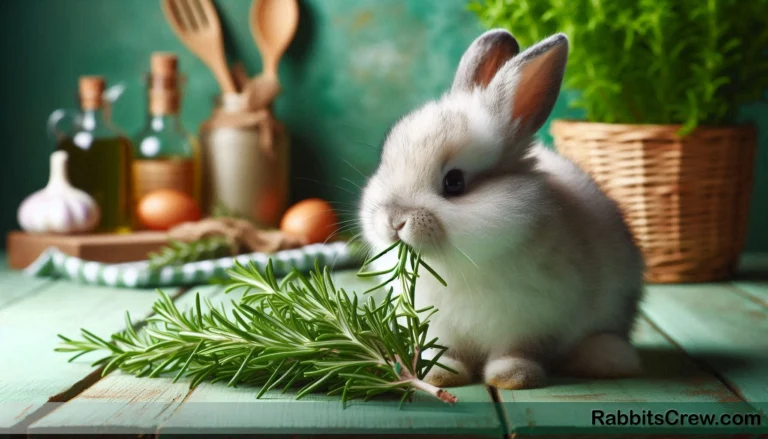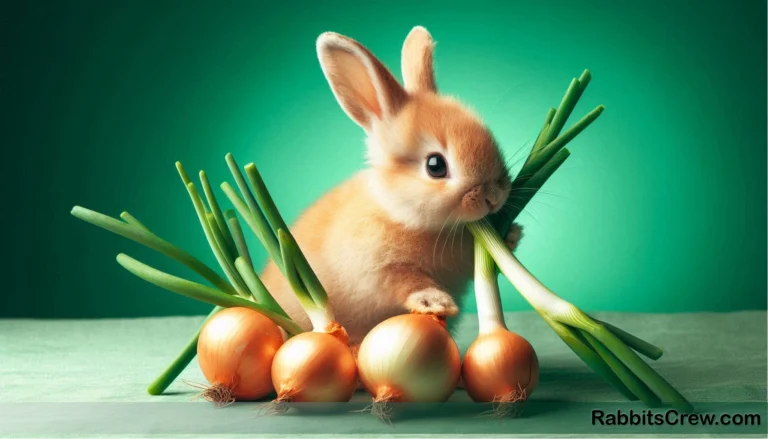Can Rabbits Eat Grapes, Seeds, Stems, Leaves? [Answered]
Rabbits can eat grapes, including seeds and stems, but only in small amounts. Avoid leaves. Grapes are high in sugar, so offer sparingly.
Rabbits can eat grapes, but only in moderation due to their high sugar content. While grapes offer some health benefits, they also pose potential risks if overfed. This article explores the safety, nutritional content, and appropriate serving sizes of grapes for rabbits, along with guidelines on feeding them grape stems, leaves, and other parts of the grape plant.
Table 1: Grapes Components and Rabbit Safety
| Component | Safe for Rabbits? | Notes |
|---|---|---|
| Fruit Pulp | Yes | High in natural sugars |
| Skin | Yes | Wash thoroughly |
| Seeds | No | Can cause digestive issues |
| Stem | No | Difficult to digest |
| Leaves | No | Can be toxic in large quantities |
| Stalks | No | Tough and indigestible |
| Vine | No | Contains sap harmful to rabbits |
Can rabbits have grapes?
Grapes are not toxic to rabbits and can be fed as an occasional treat. They contain fiber, B vitamins, and vitamin K, which can be beneficial for a rabbit’s digestive and immune system. However, due to their high sugar content, grapes should be given sparingly to avoid digestive issues and weight gain.
Table 2: Grapes’s Nutritional Composition (per 100g)
| Nutrient | Amount |
|---|---|
| Calories | 69 kcal |
| Carbohydrates | 18.1 g |
| Sugars | 16.3 g |
| Fiber | 0.9 g |
| Vitamin C | 10.8 mg |
| Vitamin K | 14.6 mcg |
| Potassium | 191 mg |
Potential Health Benefits
– Fiber: Aids in digestion.
– Antioxidants: Supports the immune system.
– Vitamins: Provides essential nutrients like B vitamins and vitamin K.
Potential Risks
– High Sugar Content: Can lead to obesity and diabetes.
– Digestive Issues: Overconsumption can cause diarrhea and bloating.
– Choking Hazard: Seeds can be a choking risk.
Table 3: Potential Health Issues from Overfeeding Grapes
| Health Issue | Cause | Symptoms |
|---|---|---|
| Obesity | High sugar intake | Weight gain, lethargy |
| Diabetes | Excessive sugar | Increased thirst, frequent urination |
| Gastrointestinal Stasis | Lack of fiber, high sugar | Bloating, lethargy, teeth grinding |
What is the correct serving size of grapes for rabbits?
The correct serving size of grapes for rabbits depends on their size. Generally, small rabbits can have half a grape, while larger rabbits can have a whole grape. It is recommended to feed grapes to rabbits no more than once or twice a month to avoid potential health issues.
How Much Grapes Can I Feed My Rabbit?
Table 4: Grapes Intake For Rabbits
| Frequency | Serving Size |
|---|---|
| Daily | Not recommended |
| Weekly | 1-2 grapes |
| Monthly | 2-3 grapes |
Can rabbits eat grape stems?
Yes, grape stems are safe for rabbits to eat and can provide additional fiber. Ensure they are washed thoroughly and cut into manageable pieces.
Can rabbits eat grape leaves?
Grape leaves are also safe for rabbits and can be a good source of fiber. As with stems, they should be washed thoroughly before feeding.
Can rabbits eat grapes with seeds?
While grape seeds are not toxic, they can pose a choking hazard. It is best to feed rabbits seedless grapes to avoid any risks.
Can rabbits eat grape stalks?
Grape stalks are safe for rabbits but should be cut into small, manageable pieces to prevent choking.
Can rabbits eat grape vines?
Yes, rabbits can eat grape vine, but it should be washed and cut into small pieces to ensure it is safe for consumption.
Are grapes safe for rabbits?
In moderation, grapes are safe for rabbits and can provide some nutritional benefits. However, due to their high sugar content, they should only be given as an occasional treat.
Are grapes bad for rabbits?
Grapes can be bad for rabbits if fed in excess due to their high sugar content, which can lead to obesity, diabetes, and digestive issues.
How to feed your rabbit grapes
– Wash grapes thoroughly.
– Choose seedless varieties.
– Cut grapes in half for small rabbits.
– Monitor your rabbit for any signs of digestive distress.
By following these guidelines, you can safely incorporate grapes into your rabbit’s diet as an occasional treat, ensuring they enjoy the benefits without the risks.

